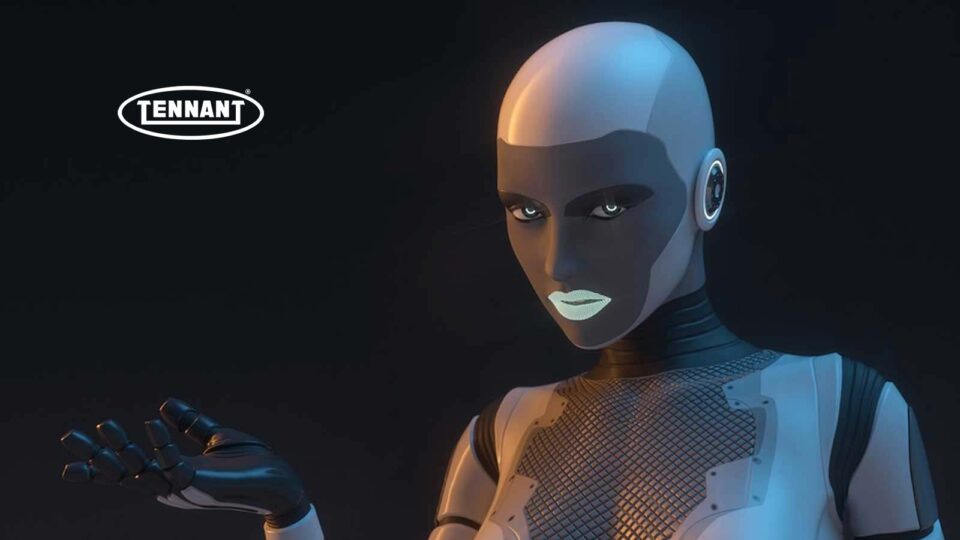Lithium-ion technology is sustainable, maintenance-free, hassle-free, and offers increased productivity on Brain Corp powered robotic machines
Tennant Company a world leader in designing, manufacturing, and marketing solutions to reinvent how the world cleans, announced the introduction of lithium-ion technology to their portfolio of AMR machines, including the T380AMR, T7AMR, and T16AMR. This new advanced battery technology provides added benefits to customers across the world in the cleaning industry. Tennant Company and partner Brain Corp, a leader in the robotics market, have engineered a portfolio of autonomous floor scrubbers and together they have deployed over 5,400 robotic scrubbers, representing the world’s largest fleet of autonomous floor scrubbers.
Top iTechnology Cloud News: Glenn Gerstell, Former General Counsel of the US National Security Agency, to Address Attendees at Cloud Security Alliance SECtemberSM
“Throughout its 150-year history, Tennant Company has been dedicated to advancing the cleaning industry by relentlessly pursuing new technologies, and we are excited to continue this legacy with the addition of advanced lithium-ion battery technology to our autonomous machines,” said Barb Balinski, Senior Vice President, Innovation and Technology, Tennant Company. “With longer run times and hassle-free maintenance, lithium-ion powered robotic scrubbers will help our customers increase their cleaning efficiency and optimize employee resources even more.”
The Tennant T380AMR is a compact floor scrubbing machine (20”) that is ideal for retail stores, hospitals and education facilities. The T7AMR is a mid-size 26” scrubber ideal for mid-to-large spaces like larger retail stores and warehouse clubs, education, and some warehousing and logistic facilities, while the T16AMR is the first robotic scrubber designed specifically for industrial and warehouse spaces, with a 36” scrub path. Prior to the introduction of lithium-ion technology, Tennant’s AMR models were equipped with flooded lead-acid batteries to operate with estimated run times of up to 4 hours. Customers will now have the option to choose between flooded lead-acid and lithium-ion batteries in their AMR machines, though this new high-performance lithium-ion battery option has a run time between 5 and 6.5 hours, depending on the model.
“Every day we clean nearly 19 million square feet of space in airports throughout the U.S., which is why we bought a fleet of Tennant’s robotic scrubbers,” said Kevin Barton, Vice President of Operations, FlagShip Facility Services, Inc. “Our T7AMR lithium-ion machine at the Raleigh-Durham Airport (RDU) has been an incredible game-changer. The autonomous floor scrubbers allow airport employees to have more time to use their skills on other important responsibilities. Plus, with lithium-ion batteries, the machines run longer and require less maintenance—saving us money and time while providing consistent cleaning performance and a better traveler experience.”
Top iTechnology Security News: Red Sift Strengthens Email Security For Cybersecurity-First Organizations Hosted on Microsoft Azure
Lithium-ion provides several benefits for Tennant’s AMR machines and customers compared to flooded lead-acid batteries, including,
- Maximized Productivity: Up to 25% to 60% more cleaning time, depending on model, which ultimately leads to more hours that employees can be redeployed to do other value-added tasks, such as stocking shelves, receiving goods, cleaning restrooms, and assisting customers, staff or students.
- Improved Uptime: Lithium-ion batteries allow opportunity charging; customers can plug in the robotic scrubber any time, even if the battery isn’t full discharged. This offers increased uptime of the machine, without risk of degrading the battery.
- Simplified Operations: A maintenance-free battery that does not require watering helps simplify operator training and reduces the risk of operator misuse and abuse.
- Reduced Costs: Eliminating battery watering and allowing opportunity charging deliver operational cost savings. With a 2,000 or more charge cycles lifespan, lithium-ion batteries reduce battery replacement costs.
- Enhanced Safety: No battery acid to worry about and no potentially harmful gases produced during charging like lead-acid batteries.
- Sustainability: Lithium-ion batteries help eliminate reliance on non-renewable natural resources, while reducing carbon emissions.
“We’re very excited about the introduction of lithium-ion batteries to the fleet of Tennant AMR machines powered by BrainOS®” said Jeff Heller, Senior Director of Product, Brain Corp. “Simply put, the more time robotic machines are running, the more productivity gains our customers can realize. With BrainOS as the only platform enabling multi-purpose robotic solutions, including Tennant’s Inventory Scan, it’s now even more critical for machines to run longer so they can be utilized more frequently while employees focus on other value-added assignments.”
Top iTechnology Cloud News: Fivetran Deepens Relationship with Google Cloud: Partner for Google Cloud Cortex Framework and Launch Partner for Google Cloud Ready – BigQuery Program
[To share your insights with us, please write to sghosh@martechseries.com]


